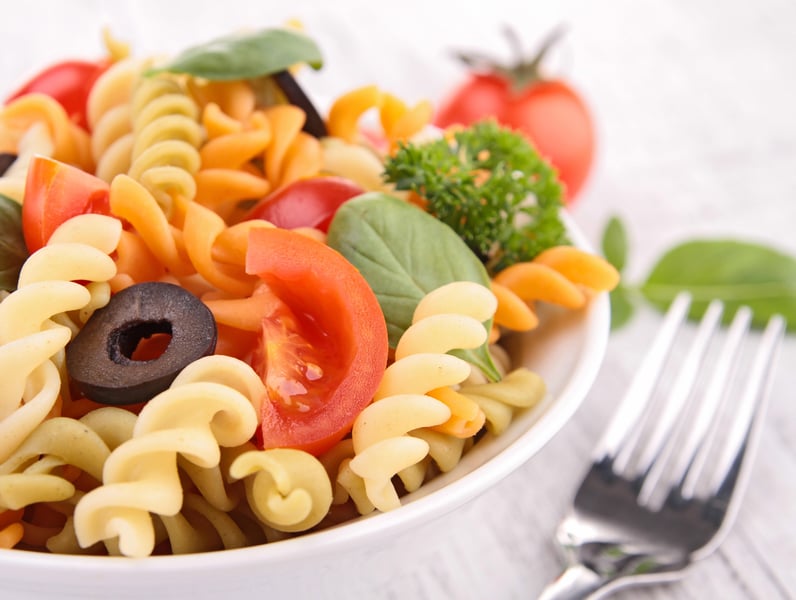Get Healthy!

- Posted February 7, 2022
How Calling a Food 'Light' in Calories Can Backfire
If the label says your food is "light," will you eat more to fill up?
Quite possibly, a new study suggests.
Researchers invited 37 men and women to a simple lunch of penne pasta, snack tomatoes, pesto, oregano and basil.
One time, the meal was described as "light" and not designed to fill them up. Another time, they were told the same meal was created to be "filling."
Overall, diners ate more when the meal was labeled "light." They also said they felt less full.
"It suggests that if you have this preconception the meal you're about to eat is going to be really filling, then maybe you'll eat less of it," said study co-author Paige Cunningham, a doctoral student in nutrition sciences at Penn State University. "And if the opposite is true, if you perceive the meal to be light and not quite as filling, then maybe you'll eat slightly more of that."
For the study, the researchers recruited 18 women and 19 men through ads and posters, excluding those whose sense of fullness or taste might be affected by particular dietary habits or health issues. Participants ranged in age from 18 to 65.
After eating, participants were asked a number of questions. Among them: "How filling did you find this pasta salad?" and "How many calories do you think you consumed?" They were also asked "How important is your health to you?"
Researchers from Maastricht University in the Netherlands repeated the same experiment. Though it's not clear whether the findings can be generalized to other locations, Cunningham said they are exciting.
"This effect could be leveraged to promote intake in vulnerable populations, [such as] older persons who perhaps aren't quite meeting their energy needs," she said.
"The flip side is perhaps it warrants caution [in] the use of labels that denote the satiating power of food," Cunningham added. "Weight loss products or products labeled as light, maybe those could backfire and actually result in more intake."
The findings are being published online Jan. 15 in the journal Appetite.
Cunningham suggested that people avoid using descriptions on labels to determine whether a food will fill them up.
"Standard advice is, no matter what the label says, just be aware of the portions that you are eating and the energy content, and the actual nutrition of the dish that you are consuming," Cunningham said. "Just make sure that you are aware of that."
Food labeling can help consumers make choices that fit their nutritional needs and their families' needs but not everyone reads a label the same way, said Connie Diekman, a St. Louis food and nutrition consultant.
Some buy what they like, regardless of the label. Others are looking at product ingredients. And still others are looking for something specific, such as sodium content.
Healthy eating is about balancing food choices, possibly finding healthier ways to prepare the foods you do enjoy and not trying to overhaul everything about your diet at once, Diekman said.
"We're still learning and we need to do more research to understand all the factors that drive how we eat and what we eat," she said.
It's important not only to eat in moderation but also to savor your food.
"We should not be eating to quell our emotions, but we should certainly be enjoying the food choices we make," Diekman said. "We should not be eating because we think this is a 'good food and if I eat it I'll be a good person.' It's about making that healthful food choice that you enjoy."
For example, it you eat a salad and it's all lettuce, how much will you need to eat to feel like you enjoyed the meal?
If you add a little bit of salad dressing that gives you a satisfying feeling in your mouth from the fat that's in it, your sense of enjoyment and fullness will likely happen sooner, Diekman said.
"It really is helping people understand, yes, we want you to make healthful food choices by using the information on a food label, but if you don't enjoy the food, if it's a healthful food is not going to matter because you won't eat it. You won't eat the right portions or you won't eat it again," she said.
More information
The U.S. Centers for Disease Control and Prevention has more on healthy eating for a healthy weight.
SOURCES: Paige Cunningham, BS, graduate student, Penn State College of Health and Human Development, State College, Pa.; Connie Diekman, MEd, RD, food and nutrition consultant, St. Louis; Appetite, Jan. 15, 2022, online



